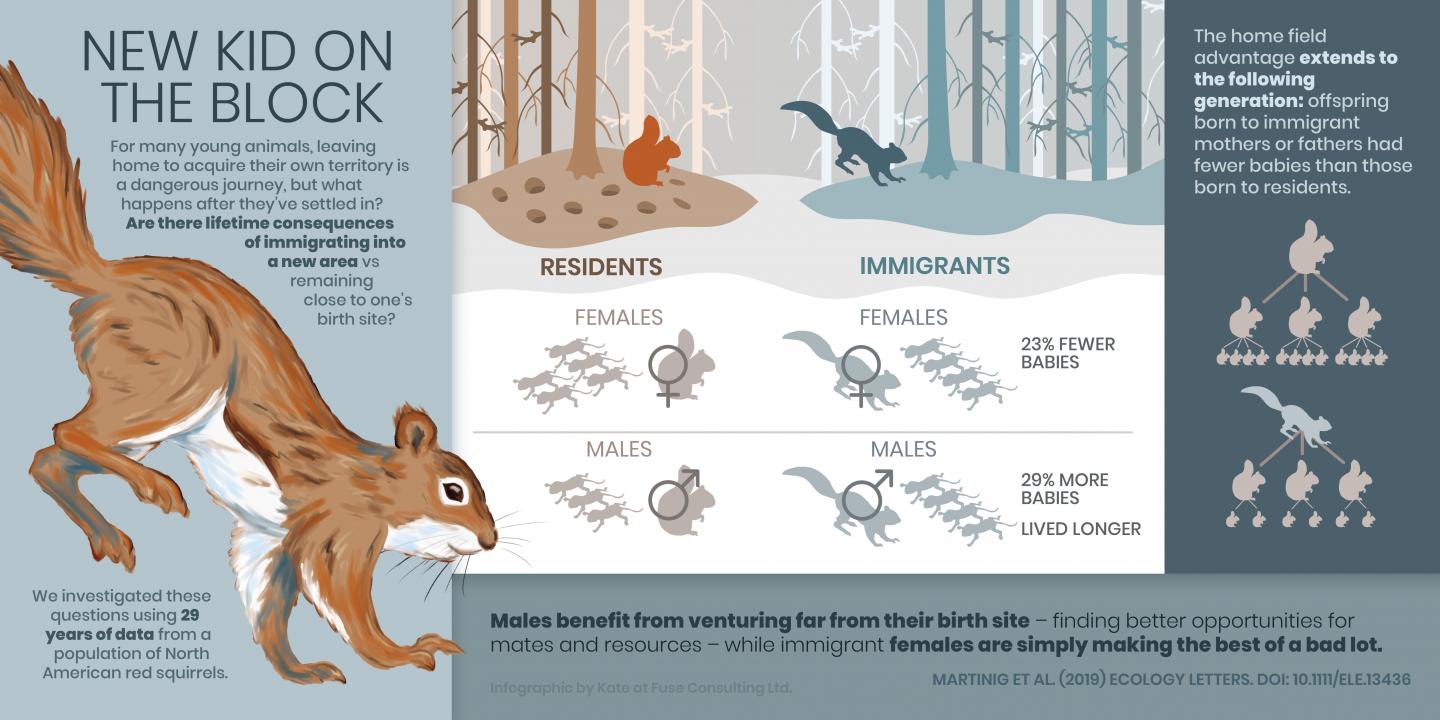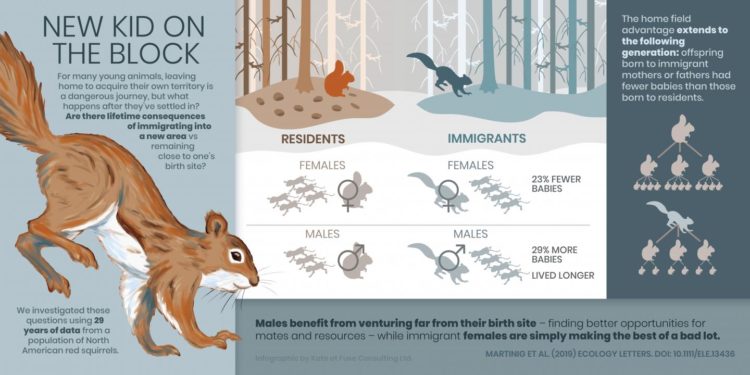New research shows that male squirrels who move outside of the population they were born to live longer and have more offspring.

Credit: Kate Broadley
In the world of squirrels, moving away from your home turf has better outcomes for males than for females, according to a new study by University of Alberta ecologists.
The study uses 30 years of data on a population of North American red squirrels in Yukon, Canada, examining how the number of offspring and total lifespan differed between squirrels who lived in the same area in which they were born and those who were newcomers to the area. And the results show that sex plays a major role.
“The benefits to living in a different population than you were born are sex-dependent,” explained April Martinig, PhD student in the Department of Biological Sciences and lead author on the study. “Males benefit from moving away, whereas females do not. We also found that the decision to move away or stay at home has an impact on offspring.”
New research shows that male squirrels who move outside of the population they were born to live longer and have more offspring.
For male squirrels, moving away is beneficial because they no longer need to compete with their siblings for limited resources, such as mates or food. Males also benefit, because female squirrels prefer to mate with newcomer males. Female squirrels, on the other hand, do not reap the same benefits, and instead lose out on the support of nearby family–something that male squirrels don’t receive.
“Squirrels live in a world where there are only so many ’empty apartments’ to live in,” said Martinig, who is conducting her PhD studies under the supervision of Professor Stan Boutin. “Sometimes one sibling is allowed to stay at home–so everyone else must go. If there are no vacancies nearby, squirrels then have no choice but to move further away. This is what females face: losing the benefits of having family nearby.”
“Movement is a crucial component of species persistence,” added Martinig. “Understanding how and why certain individuals move is key to protecting populations as climate change impacts their distribution on the landscape.”
###
The paper, “The new kid on the block: Immigrant males win big whereas females pay fitness cost after dispersal,” is published in Ecology Letters (doi: 10.1111/ELE.13436).
Media Contact
Katie Willis
[email protected]
780-267-0880
Original Source
https:/
Related Journal Article
http://dx.





